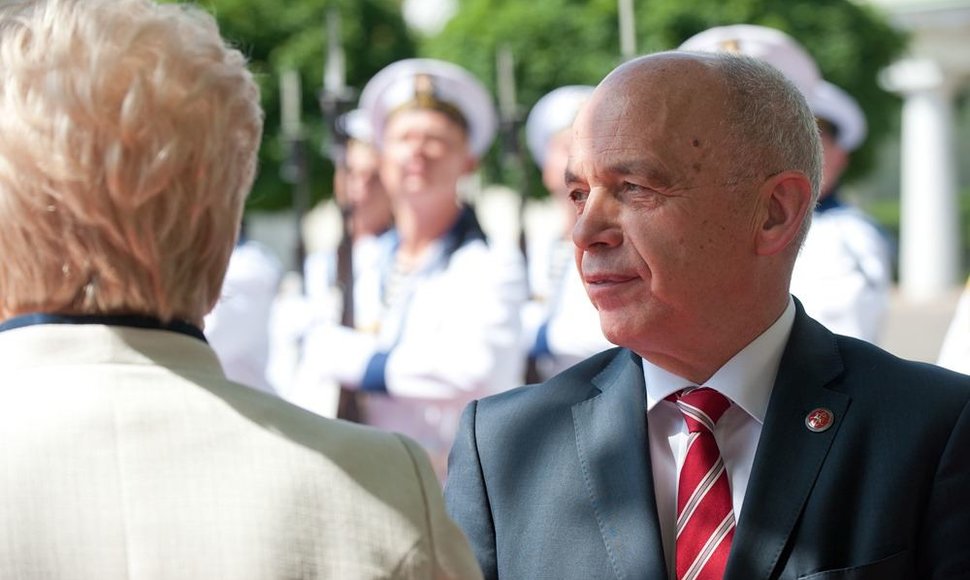“We find it very important to protect, safeguard the citizens’ private sphere. Same as any other aspects, which are important for a citizen, which are related with his private sphere, information related with banks is a secret. The things demanded by the European Union do not match our understanding about the protection of that private sphere,” he told reporters after meeting with his Lithuanian counterpart Dalia Grybauskaitė.
“Switzerland’s government has recently decided – and that decision is still valid – that we will not give our blessing to that automatic exchange of banking information. We compensate it … with a system of tax deduction at source, which means that Switzerland transfers those taxes to the country of origin without disclosing the data about the depositor, the bank’s customer,” Switzerland's President added.
Meanwhile Grybauskaitė noted that Lithuania wanted to open talks during its EU Council presidency and added that those negotiations would be long.
“Automatic exchange of information cannot be introduced anywhere because we need this question to be tackled on a horizontal and global level… EU has already mandated to talk about it, but I want to be very clear here – there are no absolute alternatives here because we need to protect our people’s rights to their information. During our presidency, Lithuania would like to start negotiations. Of course, they will be long, sensitive, but we want to start talking about it,” Lithuania’s President said.
The Commission, which seeks to step up fight against tax evasion, has proposed to implement new regulation involving, among other things, the exchange of information about bank customers.
Algirdas Šemeta, European Commissioner for Taxation and Customs Union, Audit and Anti-Fraud, told BNS in mid-May that the Commission sought to open talks between the EU and Switzerland on the exchange of banking data without major delays. However, he did not specify the terms when the talks, which he described as “historic”, might be launched.
Austria and Luxembourg, which had stubbornly maintained banking secrecy rules for many years, finally agreed in May that the Commission should open talks on the exchange of information with non-EU nations like Switzerland, Andorra, San Marino, Monaco, and Liechtenstein.












